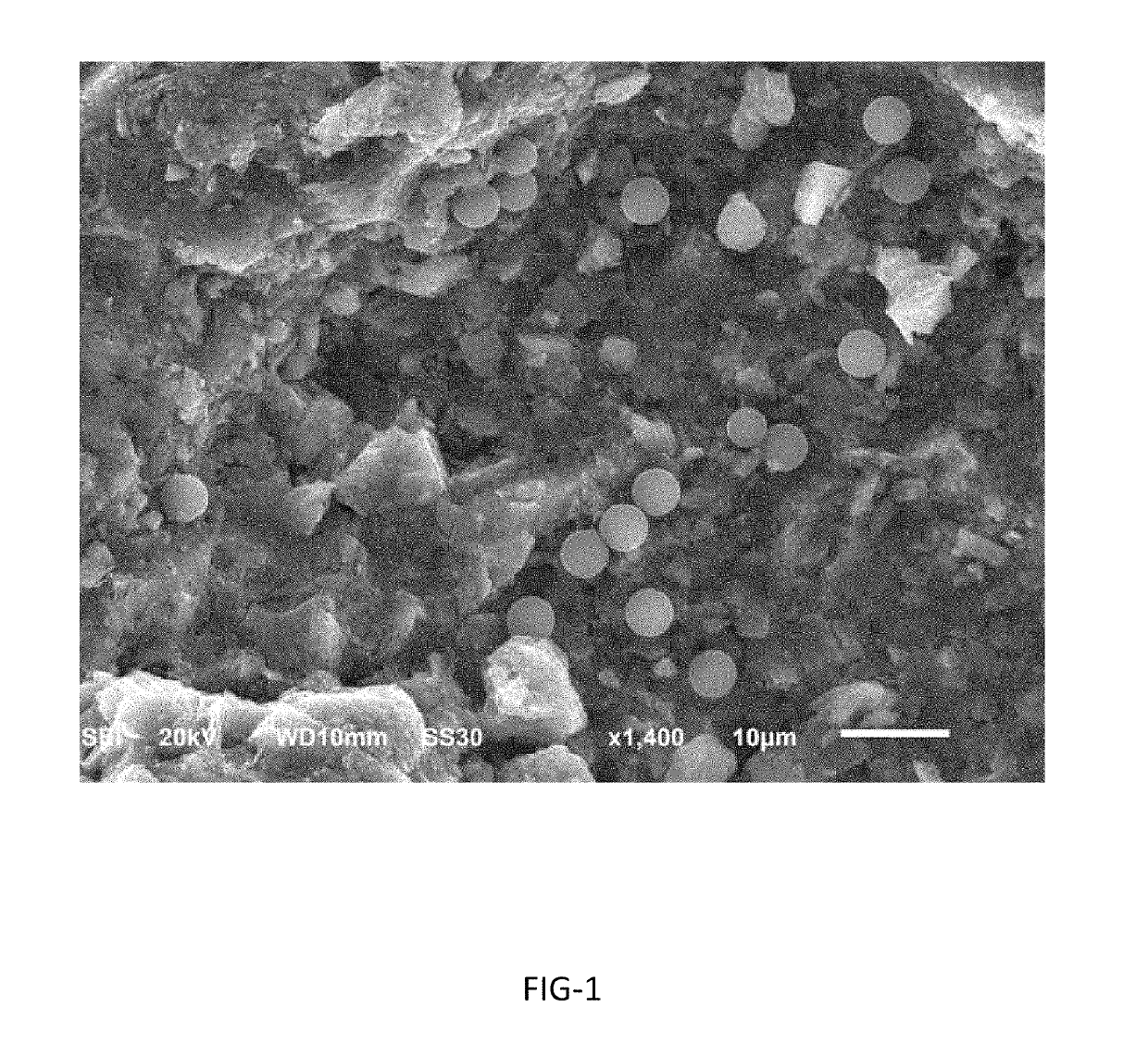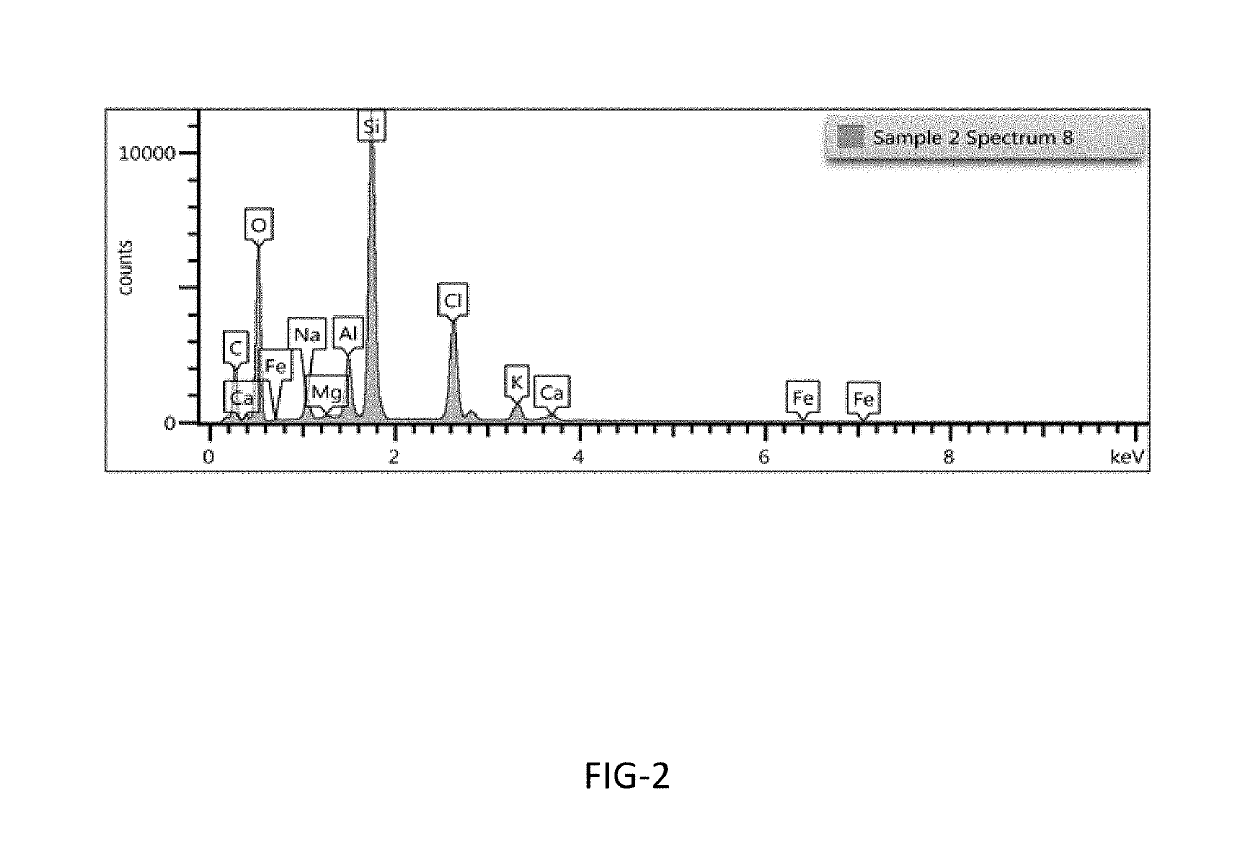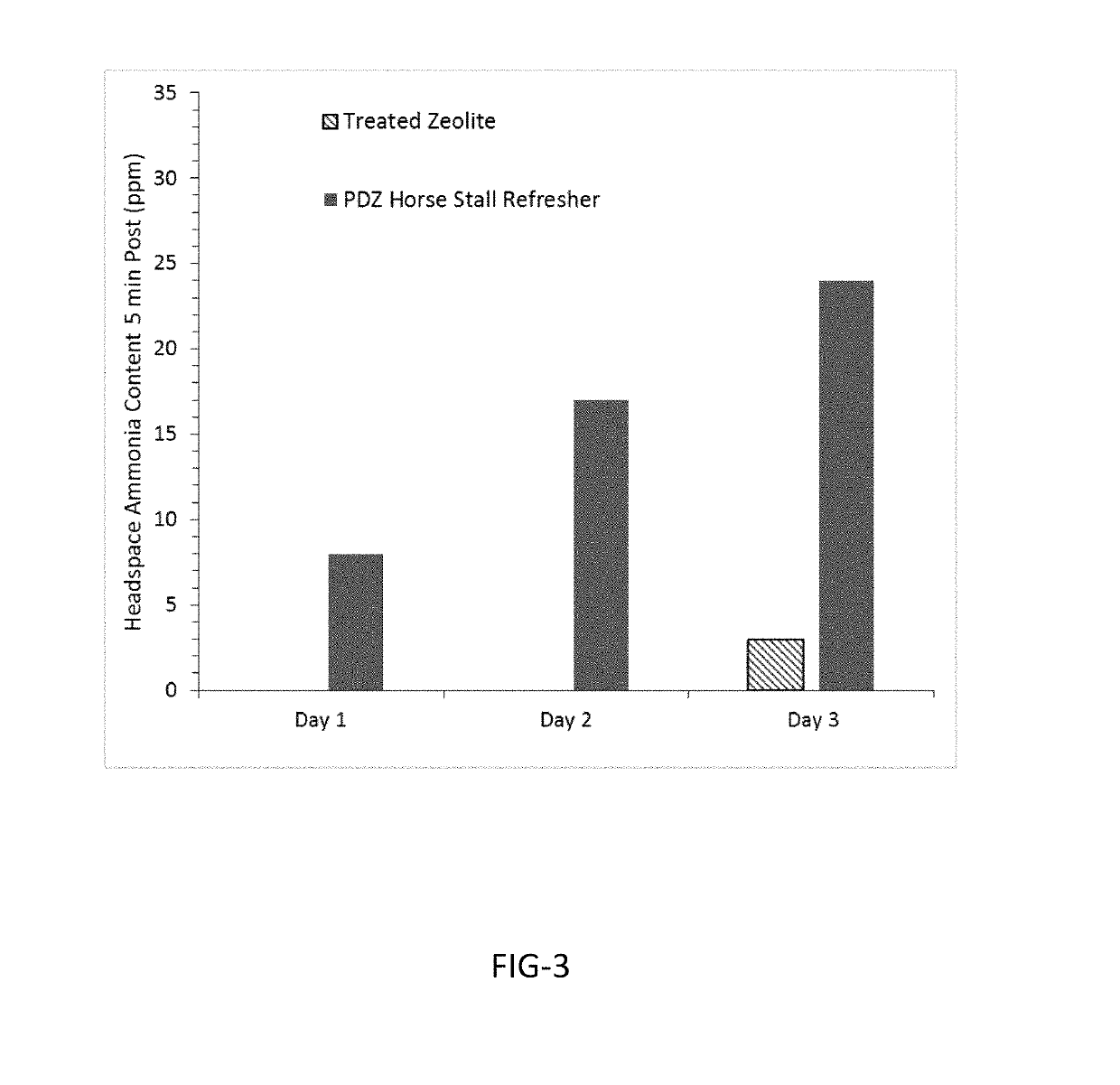Composition for the prevention and elimination of odors
a technology for odors and compositions, applied in the field of compositions for the prevention and elimination of odors, can solve the problems of unpleasant odors that are sometimes experienced in public restrooms, unfavorable odor control, and ineffective cleaning, etc., and achieve the effect of effectively removing odors associated with them
- Summary
- Abstract
- Description
- Claims
- Application Information
AI Technical Summary
Benefits of technology
Problems solved by technology
Method used
Image
Examples
example 1
[0047]The objective of this experiment was to demonstrate that when natural zeolite granules are exposed to a dispersion of particles of approximately 5 microns the absorption of the liquid vehicle into the porous zeolite leaves the micro particles exposed on the surface of the aluminosilicate granules. Latex spheres having an average diameter of 5 microns were purchased from Sigma Aldrich Inc, St. Louis, Mo., and suspended as a dispersion in water, since they are not soluble in this medium. Then, clinoptilolite aluminosilicate zeolite granules (14×40 mesh) were mixed with the dispersion until the fluid had soaked into the substrate. Samples were then vacuum dried and coated for scanning electron microscopy (SEM). Images of the surface of the zeolite showed a coating of 5 micron particles present in the crevices and voids of the coarsely irregular outer surface. This SEM image is shown in FIG. 1. Latex spheres were used because their uniform shape made them readily identifiable agai...
example 2
[0048]This experiment was performed to illustrate the method of manufacturing an odor resistant animal litter. In the procedure used twenty grams (20 g.) of micronized 1-chloro-5,5-dimethylhydantoin and 5 grams micronized 1-chloro-2,2,5,5-tetramethylimidazolidin-4-one with size around 5 um were dispersed into 40 grams of isopropyl myristate, and agitated for 30 minutes. The resulting mixture was a white and stable dispersion. The dispersion was sprayed onto 2 kg of Montmillorite zeolite granules with a spray painting gun. The treated zeolites did not show obvious visible changes. The coating can be expected to significantly reduce the fine dust particles in litter. The treated zeolite was found to react with a 1% solution of potassium iodide to produce a deep brown color, indicative of the presence of oxidant power on the surface of the N-halamine coated granules. This reactivity on contact with potassium iodide persisted unchanged for many months of storage at room temperature.
example 3
[0049]The purpose of this experiment was to illustrate the means of characterizing the coated granular medium by titration of the active chlorine contents. In the procedure used coated zeolite Cl contents were determined by iodometric titration. Approximately one half gram of coated zeolite granules was ground into fine powder, and treated with 1 g of potassium iodide (KI) in 100 mL of deionized water (the solution contained 0.05% (v / v) of TX-100). The mixture was stirred constantly at room temperature for 1 hour. The molecular iodine formed (I2) was titrated with standardized aqueous sodium thiosulfate solution. Uncoated zeolite granules were tested under the same conditions to serve as controls. The available active chlorine content on the zeolites was calculated according to equation (1):
Cl%=35.52×(V5-V0)×CNa2S2O3WS×100(1)
[0050]where VS, V0, CNa2S2O3 and WS were the volumes (mL) of sodium thiosulfate solutions consumed in the titration of the coated and uncoated samples, the conc...
PUM
| Property | Measurement | Unit |
|---|---|---|
| particle size | aaaaa | aaaaa |
| thickness | aaaaa | aaaaa |
| particle size | aaaaa | aaaaa |
Abstract
Description
Claims
Application Information
 Login to View More
Login to View More - R&D
- Intellectual Property
- Life Sciences
- Materials
- Tech Scout
- Unparalleled Data Quality
- Higher Quality Content
- 60% Fewer Hallucinations
Browse by: Latest US Patents, China's latest patents, Technical Efficacy Thesaurus, Application Domain, Technology Topic, Popular Technical Reports.
© 2025 PatSnap. All rights reserved.Legal|Privacy policy|Modern Slavery Act Transparency Statement|Sitemap|About US| Contact US: help@patsnap.com



